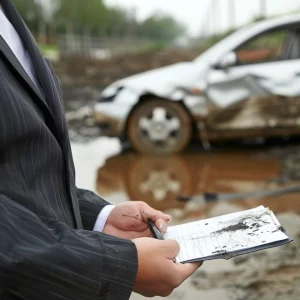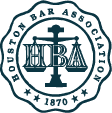Boating is a popular recreational activity millions of people worldwide enjoy. Whether cruising on a serene lake, exploring the open ocean, or navigating a river, boating can be an exhilarating experience. However, like any other mode of transportation, accidents can happen on the water. Boating accidents can result in severe injuries and property damage, leaving victims needing legal recourse. This blog post will explore the intricacies of boating accidents and personal injury claims, providing you with the essential information to navigate this challenging situation.
Understanding Boating Accidents
Boating accidents can take many forms, from collisions between vessels to accidents involving swimmers, water sports enthusiasts, and even pedestrians on docks. These accidents can occur for various reasons, such as operator error, mechanical failures, adverse weather conditions, etc. Common types of boating accidents include:
- Collisions: Vessel-to-vessel collisions with fixed objects like docks, bridges, or buoys can result in severe injuries and property damage.
- Capsizing: When a boat overturns or capsizes, passengers can be thrown overboard or trapped beneath the vessel.
- Grounding: Boats may run aground due to operator negligence or environmental factors, potentially leading to injuries or damage.
- Fires and Explosions: Engine fires or explosions can be catastrophic, causing significant harm to passengers and crew.
- Sinking: Sinking accidents are among the most dangerous, as they can result in drowning and severe injuries.
Liability in Boating Accidents
Determining liability in a boating accident is crucial when pursuing a personal injury claim. Liability may fall on various parties, depending on the circumstances:
- Boat Operators: The person in control of the vessel is often responsible for ensuring the safety of passengers and abiding by maritime rules and regulations.
- Boat Owners: Owners may be liable for accidents if they negligently maintained the boat or entrusted it to an inexperienced or unqualified operator.
- Equipment Manufacturers: Defective or malfunctioning boat components can lead to accidents, making manufacturers potentially liable.
- Other Vessel Operators: All operators may share some responsibility in collisions involving multiple boats.
- Environmental Factors: In some cases, adverse weather conditions, unexpected waves, or other environmental factors may contribute to accidents.
Proving Negligence
You must demonstrate that the responsible party was negligent to succeed in a personal injury claim. Proving negligence typically involves establishing the following elements:
- Duty of Care: Show that the responsible party owed a duty of care to you and others on the water. For example, boat operators must follow safety regulations and ensure the well-being of passengers.
- Breach of Duty: Demonstrate that the responsible party breached their duty of care. This could involve reckless or careless behavior, like operating a boat under the influence of alcohol or failing to maintain the vessel properly.
- Causation: Prove that the breach of duty directly caused the accident and subsequent injuries or property damage.
- Damages: Document the injuries, medical expenses, property damage, and other losses resulting from the accident.
Filing a Personal Injury Claim
If you’ve been injured in a boating accident and believe you have a valid claim, here are the steps to consider:
- Seek Medical Attention: Your health should be your top priority. Promptly seek medical care to address your injuries, even if they appear minor initially. Medical records can serve as crucial evidence in your case.
- Collect Evidence: Gather as much evidence as possible. This may include photographs of the accident scene, witness statements, police reports, and any relevant documentation regarding the boat and its maintenance.
- Preserve the Scene: If possible, preserve the accident scene and any evidence that may be relevant to your case. Take notes, draw diagrams, and document conditions at the time of the accident.
- Consult an Attorney: Consult an experienced personal injury attorney specializing in maritime law. They can help you understand your rights, evaluate the strength of your case, and guide you through the legal process.
- Notify Authorities: In some cases, you may be required to report the accident to the local authorities or the U.S. Coast Guard, especially if there were injuries, fatalities, or significant property damage.
- Statute of Limitations: Be aware of the statute of limitations for personal injury claims in your jurisdiction. Please file within the specified time frame to avoid the loss of your right to compensation.
Types of Compensation
If you successfully establish negligence and liability, you may be entitled to various forms of compensation, which can include:
- Medical Expenses: Coverage for past and future medical bills related to your injuries.
- Lost Wages: Compensation for income lost due to the accident and recovery.
- Pain and Suffering: Damages for physical and emotional distress resulting from the accident.
- Property Damage: Reimbursement for damage to your boat or personal property.
- Wrongful Death: In fatal boating accidents, surviving family members may be eligible for compensation for their losses.
Conclusion
Boating accidents can be both physically and emotionally devastating. Understanding your rights and the legal process is essential if you or a loved one has been injured in such an accident. While no amount of compensation can fully erase the trauma of an accident, it can help ease the financial burden and support your recovery. If you find yourself in this unfortunate situation, seek legal counsel from an experienced attorney who can help you navigate the complexities of personal injury claims in the maritime world. Remember, safety on the water should always be a top priority, and being informed about your rights is the first step towards protecting yourself in the event of a boating accident.












